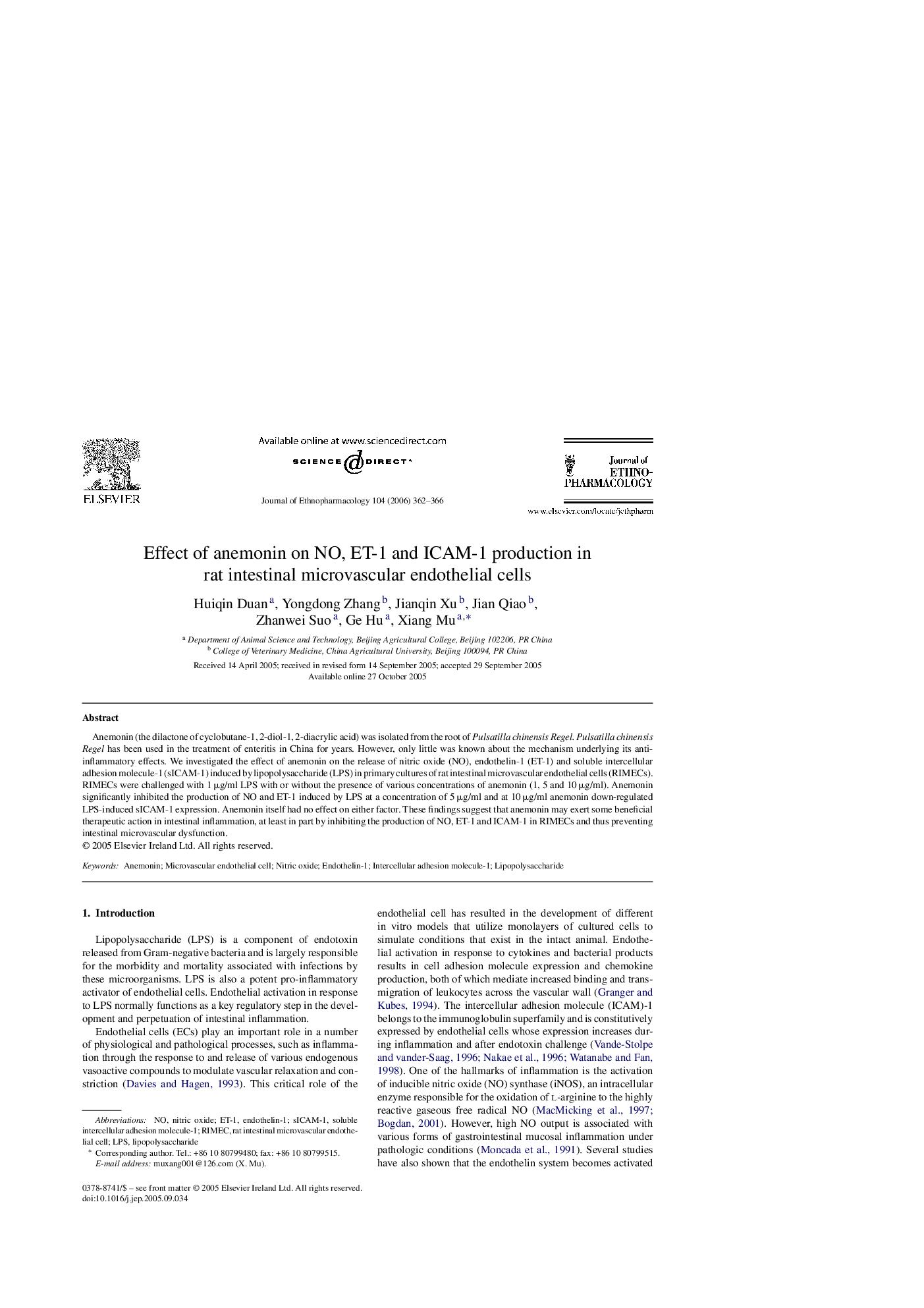| Article ID | Journal | Published Year | Pages | File Type |
|---|---|---|---|---|
| 2547832 | Journal of Ethnopharmacology | 2006 | 5 Pages |
Anemonin (the dilactone of cyclobutane-1, 2-diol-1, 2-diacrylic acid) was isolated from the root of Pulsatilla chinensis Regel. Pulsatilla chinensis Regel has been used in the treatment of enteritis in China for years. However, only little was known about the mechanism underlying its anti-inflammatory effects. We investigated the effect of anemonin on the release of nitric oxide (NO), endothelin-1 (ET-1) and soluble intercellular adhesion molecule-1 (sICAM-1) induced by lipopolysaccharide (LPS) in primary cultures of rat intestinal microvascular endothelial cells (RIMECs). RIMECs were challenged with 1 μg/ml LPS with or without the presence of various concentrations of anemonin (1, 5 and 10 μg/ml). Anemonin significantly inhibited the production of NO and ET-1 induced by LPS at a concentration of 5 μg/ml and at 10 μg/ml anemonin down-regulated LPS-induced sICAM-1 expression. Anemonin itself had no effect on either factor. These findings suggest that anemonin may exert some beneficial therapeutic action in intestinal inflammation, at least in part by inhibiting the production of NO, ET-1 and ICAM-1 in RIMECs and thus preventing intestinal microvascular dysfunction.
